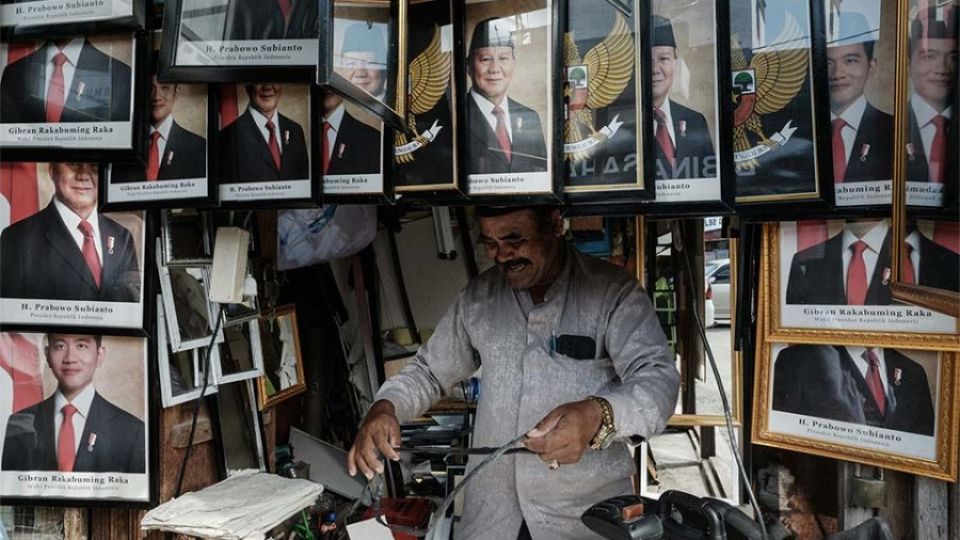January 10, 2025
JAKARTA – As the United States approaches the inauguration of its next president, the political resonance of Donald Trump’s return remains a focal point of global discussions on democracy. Trump’s political resurrection is not merely a reflection of voter frustration; it signals deeper structural issues in contemporary governance.
The parallels between Trump’s resurgence and historical instances of populism, such as Louis Bonaparte’s rise to power, offer an intriguing perspective. Karl Marx famously derided Louis Bonaparte as a “grotesque mediocrity”, an adventurer concealing his flaws behind the “iron death mask of Napoleon”. In The Eighteenth Brumaire of Louis Bonaparte, Marx detailed how societal conditions and class struggles paved the way for improbable figures to ascend to power. This dynamic, as Peter Winn-Brown highlights in The Second Coming: Part One—The Resurrection, mirrors Trump’s political career and resurgence.
Winn-Brown’s analysis, published on Medium on Dec. 2, critiques Trump’s return while drawing parallels to global populist trends, including those in Indonesia. These comparisons invite deeper reflection on the mechanisms of populist power and its impact on democratic systems.
Trump’s appeal, as Winn-Brown asserts, lies in his ability to exploit cultural and economic grievances. This narrative of victimhood and rebellion against elites mirrors trends in Southeast Asia, particularly Indonesia, where populist rhetoric has significantly shaped political campaigns. Political theorist Cas Mudde describes populism as a response to “pathological normalcy,” where democratic systems fail to address inequality and social alienation.
Indonesia’s 2019 presidential election revealed similar dynamics. Candidates like Prabowo Subianto employed populist appeals to rally support, focusing on nationalist economic policies and criticism of foreign influence. These messages resonated deeply with voters disillusioned by economic disparities. Such parallels highlight how populism, whether in the US or Indonesia, thrives by tapping into cultural insecurities and economic frustrations.
Efforts to delegitimize populist leaders often have unintended consequences, as Marx observed in his critique of Louis Bonaparte’s opponents. Figures like Victor Hugo and Pierre-Joseph Proudhon, by attempting to belittle Bonaparte, inadvertently amplified his stature. Winn-Brown notes a similar dynamic in modern politics, where attempts to cancel Trump reinforce his narrative as a victim of elite oppression. This underscores the need for strategies that address the root causes of populist discontent rather than focusing solely on individual leaders.
Winn-Brown critiques the Democratic Party’s failure to connect with working-class voters, a point echoed in Indonesian politics. Progressive candidates in Indonesia often struggle to engage rural and economically disadvantaged communities where development remains uneven. Bernie Sanders’ assertion that “a Democratic Party which has abandoned working-class people would find that the working class has abandoned them” holds true for Indonesian progressives as well. Both nations illustrate the need for progressive movements to address economic concerns while respecting cultural identities to regain trust.
Chantal Mouffe’s concept of a “chain of equivalence” provides guidance for bridging the gap between progressive movements and voters. This approach involves uniting diverse grievances under a shared vision, emphasizing solidarity over division. In Indonesia, the village fund program exemplifies this principle, channeling direct funding to rural areas for development projects. These localized policies address immediate needs while fostering long-term engagement and trust in government.
Elizabeth Catte’s studies of Appalachia, referenced by Winn-Brown, underscore the importance of local resonance in policymaking. Similarly, successful political movements in Indonesia emphasize community-based programs, such as agricultural revitalization or small-enterprise support. These initiatives address economic disparities and honor local traditions and priorities. By listening to and involving communities, progressive leaders can rebuild the trust necessary for democratic revitalization.
Participatory governance offers another pathway forward. Political scientist Archon Fung advocates for models like participatory budgeting, which empower citizens to take part in decision-making. In cities like Surabaya, participatory budgeting has proven effective in enhancing democratic accountability and fostering a sense of ownership among constituents. Expanding such initiatives could help restore faith in democracy, both in Indonesia and globally.
Additionally, progressive movements must communicate their policies effectively to resonate with voters across cultural and economic divides. Policies that emphasize inclusivity and direct benefits to marginalized groups can act as a unifying force. For instance, framing programs like healthcare access or infrastructure development as tools for both equality and economic empowerment bridges gaps in understanding and support.
Trump’s political resurrection reflects fractures in global democratic systems but also presents an opportunity for reflection and reform. While Winn-Brown highlights critical flaws, it stops short of actionable solutions. By drawing lessons from Indonesia, progressive movements in the US and elsewhere can craft policies that address economic inequality, cultural alienation and political disillusionment.
Localized approaches, such as direct funding programs, community engagement initiatives and participatory governance offer promising tools for rebuilding democratic trust. At the same time, leaders must articulate a clear and inclusive vision that unites diverse communities under shared goals of equality and opportunity. Nancy Fraser’s concept of “progressive populism”, a movement integrating economic justice with cultural inclusion, provides a compelling framework for this endeavor.
Whether in the US, Indonesia or elsewhere, populist movements challenge us to rethink the purpose and priorities of democracy. The future of democratic systems lies not in resisting these changes but in embracing them to build frameworks rooted in solidarity and shared purpose. Leaders who listen, adapt and act with intention can redefine democracy for a new era.
The writer is a lecturer in international relations at the Faculty of Social and Political Sciences, Universitas Jember.


